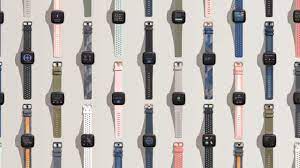Today, Fitbit announces new features for premium users who must help them determine when their bodies are ready for intense exercise or when it may need more time to recover fatigue. This feature is called Fitbit daily readiness, and uses the algorithm to find out the user’s “Fitness Fitness Fitness Fattigue Score. The hope is that it will tell the user when they are ready to exercise again and keep them from tense their bodies when exhausted from bad sleep and the previous activity is still too high.
Fitbit daily readiness features are quite easy, even though you don’t need to think that the algorithmic system to find out fitness fatigue will occur. Every morning, Fitbit will give users the readiness score of their wisdom, which considers three different things: the latest activity, sleep quality, and heart variability.
In a blog post today, Fitbit said that your activities have recently been assessed by tracking the heritage of heartbeat throughout the day. This, basically, means that all activities that produce high heartbeat will be taken into account in this score, even if it is not an explicit sport.
Score your sleep, meanwhile, not only consider the quality of sleep that you get the night before, but the quality of your sleep from the night before too. Fitbit notes that because the sleep effect on the body is cumulative, the approach in which daily readiness considers a few nights sleeping is the best to determine whether the user is ready for intense exercise.
Finally, we have a variability of heartbeat, which does not measure beats per minute but but time between individual heartbeat. Somewhat contrary to the tracking of the heartbeat, Fitbit says that high heart rate variability is good because it means “the body can easily transition from rest to activity and return.” The variability of heartbeat is not static and can be influenced by several factors, so that it can have a shear impact on whether someone is ready to exercise or not.
Fitbit said that it would measure these three factors for premium users every morning and give them a daily readiness score. Users will not only get a numeric score, but they will be included in three categories: extraordinary, good, and low. With excellent readiness, Fitbit will recommend that users push themselves during training that day. Instead, those who have good readiness will be told to take “moderate sports” or their daily exercises.
Low readiness means that the user’s body is still tired, and they may have to focus more on rest rather than getting exercises. For those who are very good and good readiness, Fitbit will recommend premium training users to participate, along with giving them a goal zone of goals for their training. Those who get low readiness rankings, on the other hand, will receive recommendations for recovery.
The central idea behind all this is to help ensure that people exercise when most beneficial for their body while do not encourage items when they are still tired. While listening to your body may still be a good practical rule, even with this daily readiness score, it looks like this score can give you insight about whether you are really ready for intense practice.
It seems everything about this feature is locked behind premium fitbit subscriptions, so while the daily readiness sounds useful, it will need $ 9.99 a month or $ 79.99 per year to access. The daily readiness score will start today and support Fitbit Sense, Versa 3, Versa 2, inspires 2, Luxe, and Charge 5,.

